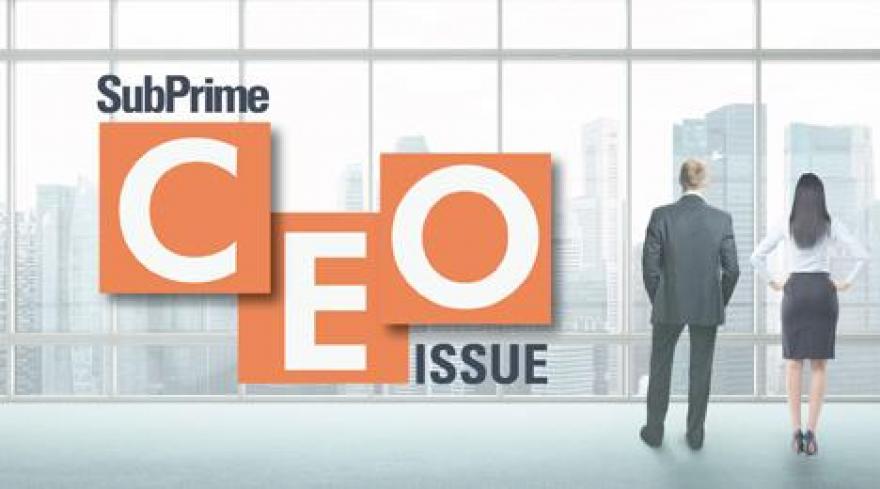Two leading providers of technology to help dealership F&I offices function smoothly — Darwin Automotive and Reynolds and Reynolds — each recently landed significant developments to boost their industry presence.
First, Darwin Automotive announced that Darwin Online is now integrated with RouteOne for retail contract validation, submission and approval.
Meanwhile, Reynolds and Reynolds and Hendrick Automotive Group said that the Reynolds docuPAD system will be installed in all dealership F&I departments throughout the dealer group by mid-July.
Darwin explained what its relationship with RouteOne means.
From the dealer’s website, a consumer can select their vehicle, briefly describe their driving habits, select payment options and then receive a 100 percent accurate payment. After being educated on the available protection and accessories, the consumer can opt to save even more time and get approved via the RouteOne integrated credit application.
Darwin Online then can send the detailed deal structure inclusive of qualified customer and vehicle incentives and programs, insurance products, as well as any trade detail, if applicable. Dealers have full control over how much of the process is automated via their online retail services configurations.
If the dealer chooses no further automation, notifications are immediately sent to assigned dealership personnel, and direct consumer engagement occurs.
If the dealer chooses further automation, credit bureau selection occurs. Depending on the results and deal parameters, the deal automatically can be submitted to select finance companies. This process all can occur in seconds while the customer is still engaged on the dealership’s website.
RouteOne pointed out that that firm can protect dealers from compliance and fraud with a number of free services built into its platform as well as premium subscriptions for those looking for a more encompassing solution, including the dealer’s own privacy policy, Credit Score Disclosure Notices and Red Flag Screening, to name a few.
“Undeniably one of the last pieces of digital retailing yet to be tackled is online F&I,” Darwin Automotive chief executive officer Phil Battista said. “Dealers need to adopt digital retailing technology that directly addresses and prominently promotes both the ‘F’ and the ‘I,’ or there will be one less profit center for them to count on.
“With our RouteOne partnership, Darwin Online continues the evolution of digital retailing in F&I, allowing customers to shop the way they demand,” Battista continued. “We offer dealers F&I everywhere — the ability to educate and sell F&I protection to customers wherever they choose to engage your dealership and our dealers are profiting from this immensely.”
Darwin Online interfaces with more than 142 different product providers and allows dealerships to control their profitability and disclosure. It can interact with all dealership websites without any need for DMS integration. The platform can provide accurate payments that match the dealership’s DMS to the penny.
The provider noted that studies show that 63 percent of online consumers surveyed said they would be more likely to buy F&I products if they were educated about them before they came into the dealership. Darwin Online can prescribe products the customer needs 24 hours a day, 365 days a year.
Approximately 2,500 dealerships have enrolled in Darwin Automotive’s F&I software in just the past two years.
For more information, or to schedule a product demonstration, call (732) 781-9010 or visit www.darwinautomotive.com.
Hendrick adds the Reynolds docuPAD System in all dealerships
As mentioned, Reynolds and Reynolds and Hendrick Automotive Group recently announced that the Reynolds docuPAD system will be installed in all dealership F&I departments throughout the dealer group by mid-July.
Overall, Reynolds will install more than 350 docuPAD system workstations in the 96 Hendrick Automotive Group dealerships, with a large portion of those installations already having occurred. Headquartered in Charlotte, N.C., Hendrick Automotive Group will be the largest single user of the docuPAD system in the United States.
“The docuPAD system has proven itself everywhere it’s been installed,” said Bob Brockman, chairman and chief executive officer of Reynolds. “I’ve always admired Hendrick Automotive Group as disciplined and well run.
“Adding the docuPAD system to their F&I functions will help them take another step forward in the efficiency and effectiveness of their operations and in generating better financial returns in F&I,” Brockman continued.
Installing the docuPAD system also can enable Hendrick Automotive Group stores to adopt Reynolds eWorkflow, an end-to-end digital solution for creating and processing a deal and securing funding using eContracting. Hendrick Automotive Group dealerships are already using electronic deal jackets and eliminating the stacks of paper that go to the accounting office, the lender and the consumer.
Reynolds eWorkflow also can improve dealership cash flow by cutting contracts-in-transit time and facilitating faster funding of deals. Additionally, it reduces document storage costs.
“The people at Reynolds are true partners who share many of our company’s core values,” said Rick Hendrick, chairman of Hendrick Automotive Group. “Continuous improvement has been a long-standing focus for our company. The combination of Reynolds’ leading technologies and close working relationship with our team members is helping our dealerships take care of a whole new generation of customers.”
The Reynolds docuPAD system is well established in dealerships across the automotive industry as an effective way to increase financial returns in F&I offices, while also reducing errors in the F&I process and safeguarding a dealer’s compliance efforts. At that same time, the docuPAD system completely changes the consumer experience in F&I.
“Reynolds is working with our dealerships on becoming more efficient, helping reduce storage costs, and simplifying compliance needs,” said Robert Taylor, vice president of Hendrick Automotive Group information technology. “These new technology platforms are also fully interactive and allow our team members and customers to go seamlessly through an interactive F&I process. They are interchangeable, giving our individual F&I departments the ability to customize the process, fit the needs of their customers, and improve the overall dealership experience.”
Dealerships across the industry last year closed approximately 1.6 million vehicle sales using the Reynolds docuPAD system, which is an increase of more than 30 percent over 2016. On average, those dealerships also realized increased gross profit in F&I operations, according to Reynolds.
Looking ahead, Reynolds projected that 2 million vehicle sales will be closed through the docuPAD system in 2018.
“All of us at Reynolds are extremely proud to work with the people across Hendrick Automotive Group,” Brockman said. “We recognize that their customers expect a rewarding, convenient, and efficient experience. We believe the new solutions we’re providing will help every Hendrick Automotive Group store deliver that experience more effectively and profitably.”
Auto finance fraud often happens during the origination process, so PointPredictive and defi SOLUTIONS are joining forces in an effort to curtail the growing trend that TransUnion recently reported as having surpassed $500 million last year alone.
On Thursday, PointPredictative announced a new partnership with defi SOLUTIONS. PointPredictive insisted that it brings a suite of artificial intelligence (AI) predictive scoring that can identify the presence of material misrepresentation and fraud within automotive loan applications and automotive dealers. This predictive technology has been shown to streamline auto financing decisions in real-time while protecting and reducing auto lender losses by 50 percent or more in fraud and first and early payment defaults due to material misrepresentation.
These types of losses are forecasted to represent a nearly $6 billion problem industry wide, according to PointPredictive.
The defi SOLUTIONS platform of services can offer finance companies the flexibility and freedom to leverage leading-edge technologies like PointPredictive’s to optimize decisioning efforts. Officials highlighted defi SOLUTIONS’ auto finance customers will be invited to participate in a limited-time, no-risk, pilot of PointPredictive’s solutions. They will also receive no-fee membership in the PointPredictive Auto Fraud Consortium.
“This addition to our partner roster helps ensure our clients have quick access to the information they need to run their businesses,” said Stephanie Alsbrooks, chief executive officer at defi SOLUTIONS.
PointPredictive chief executive officer Tim Grace added, “We are very excited about our new partnership with the fastest growing auto origination platform in the U.S. — defi SOLUTIONS.
“Our vision is to provide a real-time, actionable fraud score for every auto loan application in the industry,” Grace continued. “Credit scores and identity fraud alerts are not sufficient to allow lenders to determine when someone has made a material misrepresentation of information on an application. These material misrepresentations are some of the leading reasons why default and loss rates are increasing today.”
PointPredictive users have real-time access to Auto Fraud Manager 2.0 and DealerTrace 2.0, which can increase fraud detection by leveraging enhanced predictive algorithms that evaluate the entire financing application, as well as recent activity from dealers. This tool can enable finance companies to screen for, and detect, all types of fraud including identity, employment, income, collateral and dealer risk.
In recently completed evaluations, the company said Auto Fraud Manager identified more than 50 percent of fraud, first payment defaults and misrepresentation-related early payment defaults within the riskiest 7 to 10 percent of all applications, when rank-ordered by the Auto Fraud Manager score.
For further information on receiving Auto Fraud Manager through defi LOS, contact PointPredictive at [email protected] or Patty Jefferson at [email protected].
Editor’s note: Eric Werab, vice president of fraud and product strategy at PointPredictive, is slated to be a special guest during an upcoming episode of the Auto Remarketing Podcast. Past episode are available here.
This week, two providers of vehicle service contracts enhanced their relationships with finance companies that often cater to consumers who fall into the subprime credit space.
First, GWC Warranty, a provider of vehicle service contracts sold through dealers, announced a strategic alliance with Nicholas Financial, a provider of direct consumer loans and installment sales contracts.
Also, Westlake Financial Services revealed a new partnership with AUL Corp., a warranty and vehicle service contract administrator. Bringing nearly 30 years of experience, AUL will now provide back-end servicing in 19 states for Secure One, Westlake’s vehicle protection program.
Nicholas Financial operates a network of 63 locations in 18 states spanning the Southeast and Midwest. Nicholas, which was established in 1987, is one of the largest publicly traded specialty consumer finance companies in North America.
“GWC's partnership with Nicholas Financial is yet another example of our company’s commitment to delivering a best-in-class experience that helps dealer generate strong referrals and repeat buyers,” said Rob Glander, chief executive officer and president of GWC Warranty.
“By aligning with Nicholas, we now have a partner to help us in continuing to share the ‘No Worries, Just Drive’ experience we provide dealers and their customers nationwide,” Glander continued.
Glander insisted the strategic alliance will offer both dealers and consumers more convenient and seamless access to quality financing and best-in-class service contracts. Through its established and growing dealer network, Nicholas will now offer GWC vehicle service contracts, providing its dealers and their customers the confidence that comes along with GWC’s track record of paying more than $3.5 billion in claims to date as part of APCO Holdings.
“At Nicholas, we offer dealers the opportunity to increase sales and maximize profits through financing programs tailored to both the customer and the dealer,” said Nicholas president and CEO Doug Marohn.
“GWC, much like the team at Nicholas shares a passion for helping dealers create repeat sales. This customer-focused approach to vehicle service contract and claims administration made this partnership a natural fit,” Marohn went on to say.
A similar scenario unfolded for Westlake and its Secure One platform, which offers two vehicle protection coverages: Powertrain and Advantage.
Powertrain will cover the vehicle’s engine group, turbocharger/supercharger, transmission, transaxle, transfer case and drive axle group. With Advantage Coverage, the customer will receive all Powertrain Coverage, plus power steering, electrical and air conditioning.
Both coverage options are available on either a 12-month/12,000-mile or a 24-month/24,000-mile financed term. Additional product benefits include; $100 deductible, 24-hour roadside assistance, rental car and trip interruption.
“Our customers look for reliable vehicle protection options that allow them to drive every mile with confidence,” said Ralph Ontiveros, vice president of Westlake Services & Lending Solutions.
“Not only does AUL have a national network of repair facilities and industry-leading customer support, it also is backed by an ‘A’ rated underwriter, providing great benefits to our customers and peace of mind on the road,” Ontiveros continued.
AUL vice president of national accounts Bryan Nieves added, “We just celebrated the issuance of our 2 millionth policy, and we welcome new partners who share our customer-first philosophy. Westlake Financial’s sterling reputation and commitment to its customers’ well-being make them a natural fit for our back-end services. We look forward to honoring their reputation with best-in-class support.”
Westlake Financial Services is active in all 50 states plus Puerto Rico, with a dealer base of more than 30,000 franchise and independent dealerships. Dealerships interested in learning more about Westlake Financial Services are invited to contact Westlake directly at (888) 893-7937 or online at www.westlakefinancial.com.
Nicholas Financial operates a network of 63 branch offices in 18 states including Alabama, Florida, Georgia, Illinois, Indiana, Kansas, Kentucky, Maryland, Michigan, Missouri, North Carolina, Ohio, Pennsylvania, South Carolina, Tennessee, Texas, Virginia, and Wisconsin. The company originates direct contracts in Florida and North Carolina. More details can be found at nicholasfinancial.com.
For more information about GWC Warranty, visit www.GWCwarranty.com.
For more details about AUL’s offerings, visit www.aulcorp.com.
PointPredictive understands criminals looking to orchestrate auto finance scams aren’t sitting idle.
On Tuesday, PointPredictive announced the launch of a new patent pending solution called Synthetic ID Alert. The solution is a complement to the company’s comprehensive application fraud scoring solution Auto Fraud Manager.
Synthetic ID Alert can help auto finance companies stop synthetic identity fraud by producing alerts on applications that exhibit patterns consistent with synthetic ID fraud. This sophisticated machine learning AI is quickly and easily installed within a lender’s technology system to be used in real-time application review.
“Auto lenders participating in our consortium meetings have identified that one of their top three issues this year is solving synthetic identity fraud. Our analysis shows that synthetic identity fraud accounts for 15 to 20 percent of fraud and misrepresentation losses across the industry. This equates to more than $1 billion in synthetic identity originations this year,” said Eric Werab, vice president of fraud and product strategy at PointPredictive.
“Synthetic identity thieves have figured out that credit scores and reports can be manipulated through schemes such as trade line piggybacking, which can artificially inflate their credit scores.”
Synthetic ID Alert scores applications based on patterns of fraud that fraud data scientists have identified in millions of historical automotive applications. This solution understands the logistics of social security number issuance, the interconnections between each of the pieces of information supplied on the application by the dealers and borrowers, and how all of these compare to proprietary and statistical norms accumulated from historical applications, dealer performance and fraud ring patterns.
If the solution determines that an application has a high likelihood of synthetic identity, a score and actionable reason codes are provided to the finance company so they can take immediate steps to prevent funding the fraudulent installment contract.
With this solution, PointPredictive projected that finance companies will need to act on less than 0.5 percent of their total application population to stop a significant portion of their synthetic ID fraud.
“Our proprietary machine learning algorithms are built on over 40 million historic applications and are capable of instantly identifying a pattern of synthetic identity. We wanted to create a simple, easy to install and use solution for lenders to solve a specific need,” PointPredictive chief executive officer Tim Grace said.
“With Synthetic ID Alert, we think we can help lenders identify a significant portion of their synthetic identity fraud applications before they approve the loans that will lead to losses,” Grace continued.
The solution is available immediately to finance companies as an application that can be installed in less than a day on existing technology systems. We also plan to offer this installation to our partner loan origination and solution providers.
To receive more information about Synthetic ID Alert, or to request the firm’s latest white paper entitled, “How Hidden Fraud & Misrepresentation are Contributing to the Rise in Default Rates,” send a request through www.pointpredictive.com or directly to [email protected].
New Nicholas Financial president and chief executive officer Doug Marohn is continuing to make moves to bolster the finance company that specializes in subprime vehicle installment contracts.
After recently highlighting plans to enhance originations along with installing an interim chief financial officer, the National Independent Automobile Dealers Association reached a partnership with Nicholas Financial, calling the provider one of the last true “common sense” finance companies in the subprime auto finance space.
Nicholas Financial connected with NIADA as a Bronze-level National Corporate Partner, joining a highly vetted roster of product and service providers available to NIADA member dealerships.
“We are extremely excited and proud to be part of such a great organization,” Marohn said. “NIADA has been synonymous with integrity and service in the preowned automobile industry for years. Its values align well with Nicholas', and we look forward to a very long and prosperous partnership.”
With local branch offices in every market Nicholas Financial services, the company has the ability to tailor lending and purchasing guidelines to the specific needs of each dealer partner.
Marohn emphasized Nicholas Financial's unique approach to originations is designed to find ways to approve deals even when others might say no, and provides an opportunity to price each contract on its own risk level.
Marohn went on to say that Nicholas Financial strives to conduct up-front investigations and customer interviews so dealers know the approvals they get are solid. That process allows Nicholas to provide some of the fastest funding in the industry; of many company features that appealed to NIADA senior vice president of member services Scott Lilja.
“Nicholas Financial brings to our independent auto dealership members a very local-market, personalized service approach to their auto finance resource needs,” Lilja said. “Local underwriting means quick turnaround on loan applications, helping our members meet and exceed their customers' expectations.
“In this day and age of automated, centralized, technology-driven loan decision systems within the auto finance market, Nicholas brings a unique, local-market service approach that aligns with our mission as the voice and advocate for independent auto dealers nationwide,” Lilja went on to say.
Fitch Ratings recently took a deeper look at the captive segment of auto financing, projecting their performance and potential revenue push toward their parent automaker.
Analysts determined the trend of rising leverage for U.S. captive auto finance companies, fueled by strong new-vehicle retail financing and lease demand, has moderated recently, according to Fitch Ratings' latest North American Financial Institutions Chart of the Month.
The firm explained the moderation in leverage more recently has been driven by less robust asset growth, strong earnings and capital generation, and in some cases a reduction in dividends paid to the OEM parents. Still, with the exception of American Honda Finance Corp. (AHFC), captives’ leverage remains above Fitch's implied financial benchmark, underscoring the importance of potential parent support in Fitch’s auto captive analysis.
In Fitch's view, captives’ elevated leverage is mitigated to some extent by solid credit performance, which has remained fairly stable despite concerns that looser underwriting standards over the past few years and an excess supply of used vehicles would lead to a sharp degradation in credit performance.
With the exception of GM Financial, which continues to transition to a full spectrum captive since its acquisition of subprime-focused AmeriCredit in 2010, Fitch Ratings indicated that captives’ installment contract and lease portfolios have remained predominantly prime-focused.
Fitch Ratings director Michael Taiano acknowledged that weakening used-vehicle prices in the first half of 2017 appear to have at least temporarily stabilized following the increase in vehicle demand in the wake of the hurricanes in Texas and Florida, and may benefit further from the positive effects of tax reform on the U.S. economy.
“Going forward, we expect leverage for the auto captives to remain fairly stable as new loan and lease demand slows following several years of strong growth, although strong earnings generation could lead to higher dividend payments to OEM parents,” Taiano said.
“While auto captives’ credit performance should continue to normalize over the medium term, the pace of normalization could moderate in the near term as a result of a strengthening U.S. economic backdrop,” he said.
Brian Landau, senior vice president and automotive business leader at TransUnion, needed just one descriptive moniker to summarize the auto finance data from the fourth quarter — a correction.
The auto finance portion of TransUnion’s Q4 2017 Industry Insights Report released on Tuesday showed that while auto finance balances grew 5.5 percent between Q4 2016 and Q4 2017, this figure marked the lowest annual growth rate since a 5.3-percent rise in Q2 2012 over Q2 2011.
Despite a slowdown in balance growth, TransUnion observed a marked increase in the number of outstanding auto contracts — growing to 79.4 million in Q4 2017 compared to 75.8 million one year earlier.
“I believe it is a correction, just like whatever others in the industry might call it, because we’re starting to see not necessarily a sharp change happening with regard to originations or balances,” Landau told SubPrime Auto Finance News ahead of the report release. “It’s more of a slowdown in some parts of the credit spectrum. That to me means it’s a controlled tightening if you will.”
The TransUnion report showed originations also declined on a yearly basis for the fifth consecutive quarter, falling 4.8 percent in Q3 2017. The decline in originations was driven by an 8.2 percent yearly drop for the subprime, near prime and prime credit risk categories, though that was partially dampened by only a 0.2-percent annual decline in the prime plus and super prime risk categories.
TransUnion reiterated that originations are viewed one quarter in arrears to account for reporting lag.
Another important trend mentioned in the report included TransUnion determining that serious auto loan delinquency rates per borrower — contracts 60 days or more past due — also remained stable. The Q4 reading improved 1 basis point to 1.43 percent.
“It’s still a little too early to say whether or not we’re going to continue to see that trend. But it is a positive indicator that a correction is happening,” said Landau, while referencing that the latest rate is more than 20 basis points lower than the reading spotted during the worst of the Great Recession of 2008 and 2009.
So while some stock traders on Wall Street might cringe at the thought of a correction, Landau reiterated how in this case with respect to auto finance it’s an overall positive development.
“As we all know, finance companies have a number of different levers they can pull to match risk,” Landau said. “They can pull back on term. They can require a larger amount down at the point of purchase to reduce that (loan-to-value ratio). They can also adjust APR and the buy rate through the dealer to offset the credit risk that’s constantly changing. They’re always calibrating and recalibrating accordingly.
“The market is pretty resilient as I’ve said before,” he went on to say. “We have a number of people in the industry who have gone through a number of cycles to know what to anticipate. They’re being very proactive to any of the underlying trends they’re seeing. That’s why you’re seeing a slight tightening of underwriting policies and pricing.”
Q4 2017 Auto Finance Trends
| Auto Finance Metric |
Q4 2017 |
Q4 2016 |
Q4 2015 |
Q4 2014 |
| Number of Auto Loans |
79.4 million |
75.8 million |
71.1 million |
65.2 million |
| Borrower-Level Delinquency Rate (60+ DPD) |
1.43% |
1.44% |
1.27% |
1.19% |
| Average Debt Per Borrower |
$18,597 |
$18,391 |
$18,004 |
$17,456 |
| Prior Quarter Originations* |
7.1 million |
7.5 million |
7.5 million |
7.0 million |
| Average Balance of New Auto Loans* |
$20,909 |
$20,743 |
$20,245 |
$19,710 |
*Note: Originations are viewed one quarter in arrears to account for reporting lag. Source: TransUnion
Overall credit trends
TransUnion highlighted that the consumer credit market concluded 2017 on a high note with strong performance across multiple credit products, according to TransUnion’s Q4 2017 Industry Insights Report powered by Prama analytics.
Analysts found that most indicators point to a healthy credit market, though there are a few signals that lenders are being more active in rebalancing portfolio risk.
“Consumers continue to gain access to more credit, and balances are generally rising at a healthy clip,” TransUnion vice president of research and consulting Matt Komos said in a news release.
“For the most part, consumers are paying their debts in a timely fashion, which has been especially evident for mortgages and personal loans,” Komos continued. “This is likely a result of the strong economy, which has helped consumers manage their personal balance sheets and build confidence.”
During 2017, TransUnion observed 20.3 million more accounts spanning auto, credit card, mortgage and unsecured personal loans. Analysts contend the growth is likely due to continued declines in the unemployment rate, which decreased to 4.1 percent in Q4 2017 compared to 4.7 percent in Q4 2016.
Additionally, the University of Michigan’s Index of Consumer Sentiment — a measure of consumer confidence — stood at 95.9 in December 2017, up 2 percent from December 2016.
“This demonstrates consumers have positive expectations regarding the overall economy, and we anticipate this will lead to higher consumer credit activity in the near future,” Komos said.
“While most indicators point to a fluid consumer credit economy, we are monitoring the market closely for any potential shifts,” Komos continued. “Material upticks in delinquency, interest rate increases beyond what is expected, or other unanticipated economic shocks could certainly impact the market adversely.”
TransUnion’s special website here contains more charts and details about the Q4 2017 Industry Insights Report.
Security for dealers and finance companies nowadays involves much more than just locking vehicles, the showroom and front door each night.
In fact, EFG Companies recently highlighted that data security is one of the largest areas of concern in 2018 for dealers, finance companies and their partners. According to the Identity Theft Resource Center and CyberScout, 1,579 data breaches occurred in 2017, representing a 44.7-percent increase year-over-year.
While retail automotive has been regulated under the Safeguards Rule of the 1999 Gramm-Leach Bliley Act, EFG Companies insisted that digital data was not considered an important area of focus until recent years.
This risk is driven in part by the rise of digital technology in the automotive market. From wirelessly connected cars to digital customer relationship management systems (CMS), data access points have increased exponentially.
A recent Frost & Sullivan report indicated that IT spending in the connected automotive market is projected to increase 17.3 percent from 2015 to 2025. However, the industry is just beginning to address how to protect private consumer information in a digital environment.
In the physical realm, it takes less than one minute and three pieces of information for a motivated thief to execute a security breach at a retail automotive dealership. In the digital realm, a computer hacker can gain access to payment processing software in seconds, grabbing data and exiting before the dealership is aware of the breach.
According to a 2017 study commissioned by IBM, the average cost of a single stolen data record is $141. The average total cost of a security breach was $3.62 million. The average probability of a company suffering a security breach within the next two years is 27.7 percent.
“Machine learning and sophisticated hacking software will make data security an even more important component of the retail automotive sector,” said Maurice Hamilton, vice president, technology at EFG Companies.
“For example, we believe any company processing credit cards should complete PCI DSS compliance. Within three years, companies should also implement two-factor authentication. Granted, implementing data security technology is an expense. But, as research has shown, companies cannot afford a breach,” Hamilton continued.
Achieving data security
A study of more than 10,000 consumers by Gemalto revealed that 70 percent of consumers would stop doing business with a company if it suffered a data breach.
Furthermore, 69 percent of consumers believe that companies do not take consumer data security seriously.
EFG Companies recommends companies in the retail automotive buying chain utilize the acronym ADRIFT to ask the following questions as the first step in achieving data security.
1. Have I conducted a complete security risk assessment, including all access points and partners?
2. Does my written information security program document include procedures for each department that handles digital and physical consumer data?
3. Have I reviewed all reasonably foreseeable risks that could result in unauthorized disclosure or compromise of consumer data? Am I protecting customer information from collection to disposal?
4. Have I identified a designated person responsible for customer information security, with authority to implement the program?
5. How do I foresee manageable risks that could result in unauthorized disclosure of private consumer information? For example, am I overseeing partners that might have access to, or take possession of, customer information? Do my agreements with these partners require them to implement appropriate safeguards?
6. Does my company have sufficient training, oversight and procedures for securing private consumer data?
“From vulnerable photocopier hard drives to digital CRMs, we believe digital data security should be a key business objective for every retail automotive dealer, lender and partner,” said John Pappanastos, chief executive officer and president of EFG Companies.
“While important, simply locking a file cabinet or putting a screen protector on a monitor is not sufficient. We are calling on all participants in the retail automotive chain to lock down their data,” Pappanastos went on to say.
Credit unions continue to make significant strides in booking retail installment sales contracts and vehicle leases. CU Direct and GrooveCar’s CU Xpress Lease recently highlighted just how much success they enjoyed in 2017.
In fact at CU Direct, 2017 represented a record-breaking year.
Credit unions funded 1.8 million contracts through CU Direct’s Lending 360 and CUDL lending platform, generating a record $39 billion in credit union auto paper in 2017, and surpassing the company’s record $32 billion dropped into portfolios in 2016.
Further reflecting its growing marketplace strength, CU Direct credit unions have increased auto originations 100.8 percent since 2013.
Officials insisted that CU Direct credit union partners, as an aggregate, became the largest auto finance provider in the nation in 2017, experiencing 16.2-percent growth, the second highest loan origination growth rate among the top 10 market holders in the nation, according to data from AutoCount.
The company signed new agreements with 71 credit unions in 2017. At year’s end 1,117 credit unions, serving 47.8 million members, were utilizing the company’s network of technology, including innovative platforms (CUDL, Lending 360), analytics and reporting (Lending Insights), auto-shopping tools (AutoSMART) and retail lending products (OnSpot Financing).
“We are pleased to once again provide a strong return on investment to our shareholders,” said Tony Boutelle, president and chief executive officer of CU Direct. “Credit unions continue to demonstrate their ability to compete with banks and win in the auto lending marketplace.
“We remain focused on delivering innovative lending technology that helps our credit union partners make more loans and create a better member experience,” Boutelle continued.
And as a result of the auto finance performance, CU Direct also announced that the company’s board of directors approved a 3 percent cash dividend to its credit union shareholders for a record 13th consecutive year.
CU Direct continues to deliver a strong return on investment, generating exceptional value for its credit union shareholders. The company has grown from nine shareholders in 1998 to 108 shareholders in 2017.
CU Xpress Lease releases results for 2017
Meanwhile, GrooveCar’s CU Xpress Lease, the national vehicle lease program for credit unions, recently announced its 2017 performance results, too.
In 2017, nearly 15,000 leases were written by the operation. Since launching in 2006, more than 105,000 leases totaling greater than $4 billion have been funded, and each credit union has been repaid the full residual amount on more than 50,000 matured leases.
“CU Xpress Lease continues to outperform the competitors to deliver a program credit unions can compete with at the point-of-sale,” said Robert O’Hara, vice president of strategic alliances at GrooveCar.
O’Hara highlighted new programs are continually being added to help credit unions reach their lending goals. Making CU Xpress Lease unique are the one-on-one consultations designed to work with credit unions on strategies to penetrate markets served.
“In southern California, for instance, CU Xpress Lease is seeing increased traction through expansion activities in that region along with the addition of a dedicated dealer relationship manager for that territory,” O’Hara said.
“Working directly with our partners and dealerships is just one of the ways we accomplish increased reach,” he continued. “This is one of the hottest lease markets in the country, credit unions without a lease program will miss out on nearly 70 percent of the new vehicles sold.
“Overall, leasing represents 30 percent of all new-car sales across the U.S., in urban areas this number climbs to 70 percent at select dealers. The goal for credit unions is to be competitive 100 percent of the time,” O’Hara went on to say.
Some other takeaways from 2017’s performance within the CU Xpress Lease program were:
• Average FICO score of 770
• Average term of 36 months
• 65 percent look-to-book
Because CU Xpress Lease manages and assumes all risk at lease maturity, for instance, collection of lease end fees, including termination fees, over mileage charges, excess wear and tear damage, and other fees, popularity of the program continues to climb. The following are just some of the ways the program reduces the burden on credit unions and their members:
• No surprises wear and tear lease return process
• Credit unions paid full residual amount on all matured leases — more than 50,000 leases
• Build and manage dealer relationships
• A team of lease specialists at the credit union’s disposal
It’s time again when SubPrime Auto Finance News engages with the industry for one of our most successful annual projects — "The CEO Issue."
In an ongoing effort to recognize the chief executive officers who are flourishing in today’s competitive marketplace, SubPrime Auto Finance News is asking the industry to nominate the CEOs of auto finance companies and their critical support service providers to be included in the March/April print edition that’s dubbed, “The CEO Issue.”
Between now and 5 p.m. ET on Feb. 20, nominations along with a high-resolution photograph and explanations as to why the CEO is successful can be sent to SubPrime Auto Finance News senior editor Nick Zulovich via email at [email protected].
Here are some example questions to be answered to enhance nominations:
—What moves has the CEO made to place the company into position to be successful?
—How does the CEO cultivate a productive environment that inspires the organization at all levels?
—Why is this CEO an example of successful leader who lifts the value of not just the company, but also the entire industry?
To review the rundown of CEOs honored in last year’s issue, the digital version can be found here.
SubPrime Auto Finance News publisher Bill Zadeits explained why this endeavor has become one of the highlights of the editorial calendar.
“As our industry continues to evolve, CEOs face many challenges to protect the prosperity of their organizations, not only in the present, but also several quarters and years down the road,” Zadeits said. “The auto finance industry is extremely fortunate to have some of the best leaders who handle those challenges quite well.
“Each year, our network of industry partners has raised its collective hand so we can showcase these impressive executives,” Zadeits continued. “We’re excited to learn more about each of these talented CEOs who will guarantee this $1 trillion economic pillar continues to flourish.”
Along with it being, “The CEO Issue,” the March/April edition of SubPrime Auto Finance News also will focus on both Vehicle Finance Conference hosted by the American Financial Services Association as well as the National Convention & Expo orchestrated by the National Automobile Dealers Association — signature industry events that run from March 20-25 in Las Vegas.
So if you have a longstanding relationship with or report to a CEO who should be included in “The CEO Issue,” send your nominations, images and responses to the sample questions listed above to SubPrime Auto Finance News editor Nick Zulovich at [email protected]. Nominations will be accepted through Feb. 20.
And be sure to get your copy of “The CEO Issue” delivered to your mailbox or grab one at the AFSA or NADA events. If you don’t already have one, get your free subscription by going to www.autoremarketing.com/subprime/subscribe.












